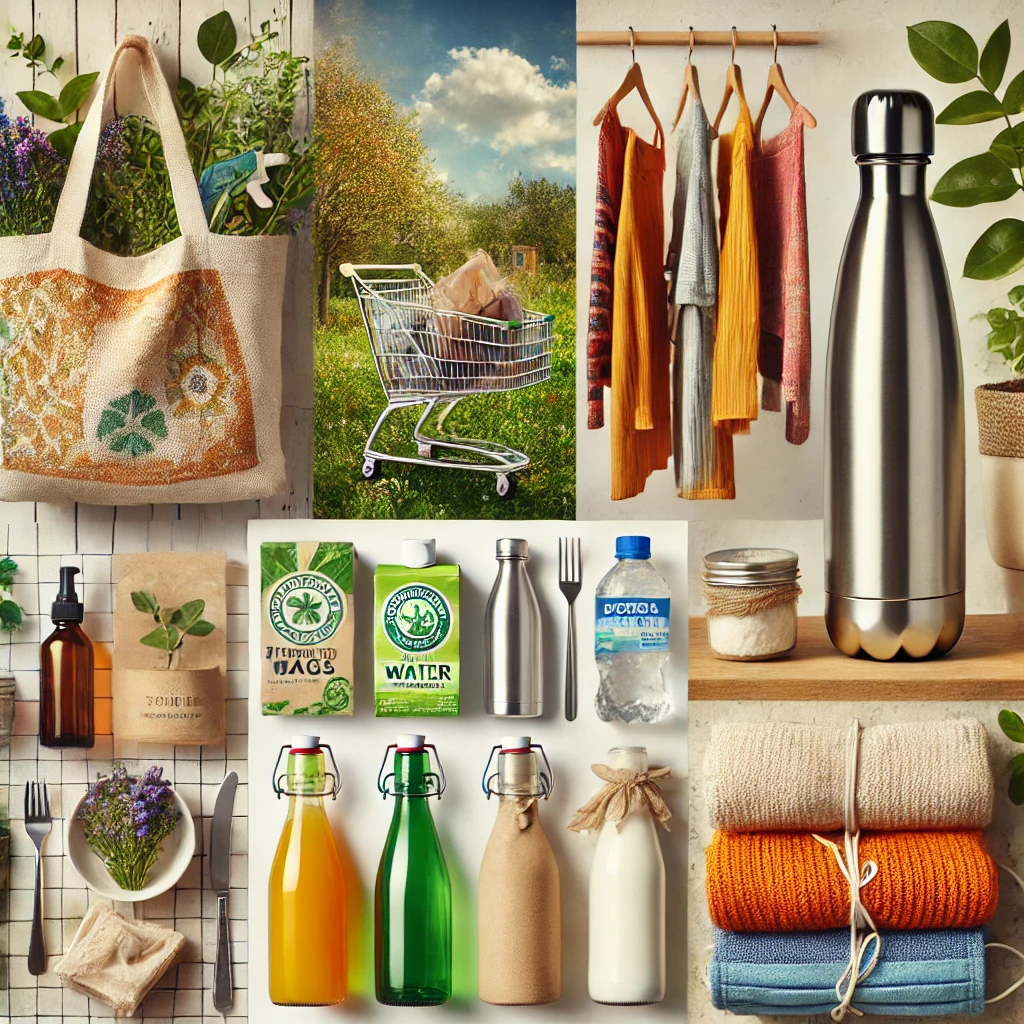Physical Address
304 North Cardinal St.
Dorchester Center, MA 02124
Physical Address
304 North Cardinal St.
Dorchester Center, MA 02124

With the start of a new year on the horizon, it’s a natural time for many of us to assess our habits and evaluate how well they align with our values. In recent years, I’ve made a conscious effort to reduce waste, save money, and live more sustainably. This has led me to reevaluate the things I choose to buy, and not buy. Here are some items I’ve decided to leave off my shopping list in 2025, and why it’s better for both the planet and my wallet.
Single-use plastics like water bottles, straws, and shopping bags have become increasingly unnecessary thanks to reusable alternatives. By investing in a good-quality water bottle, reusable bags, and stainless steel straws, I’ve significantly cut down on my plastic consumption. This not only reduces pollution but also saves me money over time. Furthermore, avoiding single-use plastics helps combat the growing problem of microplastics, which are contaminating oceans and entering the food chain.
Reusable alternatives aren’t just practical; they also make a statement. Carrying a chic reusable tote or a stylish water bottle shows commitment to sustainability and often inspires others to make the switch. Small changes like this can collectively create a massive impact.
Fast fashion may seem appealing with its trendy designs and low prices, but the environmental and ethical costs are staggering. Instead, I’m focusing on building a wardrobe of timeless, high-quality pieces from sustainable brands or thrift shops. By buying fewer but better items, I’m reducing waste and supporting ethical practices.
Additionally, the thrill of thrifting has become a new hobby. Not only does it save money, but it’s also exciting to find unique, one-of-a-kind pieces that can’t be found in mass-produced collections. For special occasions, I’ve also started exploring clothing rental services, which allow me to enjoy stylish outfits without the commitment of ownership.
Products with excessive or non-recyclable packaging are another thing I’m saying goodbye to. I’ve started choosing items with minimal, biodegradable, or reusable packaging, or buying in bulk to reduce waste. Shopping at zero-waste stores has also been a game-changer in my sustainability journey.
To go even further, I’ve started DIYing products like soap and skincare, which allows me to control the ingredients and avoid unnecessary packaging. Plus, making these products at home can be a fun and rewarding activity.
We’ve all been there: seeing a sale and buying something we don’t really need. In 2025, I’m committing to thoughtful purchasing. By planning ahead and sticking to a list, I’m avoiding unnecessary expenses and reducing clutter in my life. This also means more savings for the things that truly matter to me.
One method I’ve adopted is the 30-day rule: if I’m tempted to buy something, I wait 30 days. Often, the initial urge fades, proving that the item wasn’t truly necessary. This approach has not only helped me save money but also made me more intentional about my consumption habits.
The allure of shiny new tech can be hard to resist, but I’ve realized that many gadgets are redundant or short-lived. In 2025, I’ll focus on maintaining and upgrading what I already have instead of buying the latest releases. This approach not only minimizes e-waste but also saves a significant amount of money.
For instance, instead of replacing my smartphone, I’ve learned how to repair it when necessary. Many communities now offer repair cafes where experts help fix electronics, extending their lifespan and reducing the number of devices that end up in landfills.
Many conventional cleaning products are not only harmful to the environment but also to our health. This year, I’m switching to homemade or eco-friendly alternatives. Simple ingredients like vinegar, baking soda, and essential oils can work wonders, are much cheaper, and come with far less packaging.
What surprised me most was how effective these natural alternatives are. For example, a mix of vinegar and water works as a fantastic all-purpose cleaner, while baking soda can tackle tough stains and odors. These solutions are not only cost-effective but also safe for children and pets.
Paper towels, napkins, and disposable plates are being replaced with cloth alternatives and reusable dishware. These small changes make a big impact over time by reducing deforestation and waste. Plus, investing in durable, reusable items is more cost-effective in the long run.
I’ve also started using a bidet attachment for my toilet to significantly reduce my reliance on toilet paper. It’s a small change that has drastically lowered my paper consumption while also feeling cleaner and more hygienic.
Planning celebrations without disposable party supplies has become a new priority for me. Instead of plastic cups, plates, and cutlery, I use reusable alternatives or rent items for larger gatherings. Decorations are either homemade, compostable, or borrowed from friends.
For instance, fabric banners and tablecloths can be reused year after year, adding a personal touch to celebrations. By cutting out single-use party supplies, I’m creating less waste and saving money in the process.
Sustainability doesn’t have to mean sacrificing convenience or style. By reevaluating the things we buy and shifting our habits, we can make choices that are kinder to the planet and better for our finances. This year, I’m excited to continue this journey and inspire others to do the same. After all, every small change adds up to a bigger impact.
By making mindful decisions, we not only protect the environment but also simplify our lives and save money. Whether it’s skipping single-use plastics, embracing slow fashion, or rethinking impulse buys, there are countless ways to live more sustainably. Let’s start 2025 with a commitment to ourselves and the planet—because together, we can make a difference.
What are some things you’re considering cutting back on in 2025 to live more sustainably? Let’s start a conversation and share ideas for a greener future!